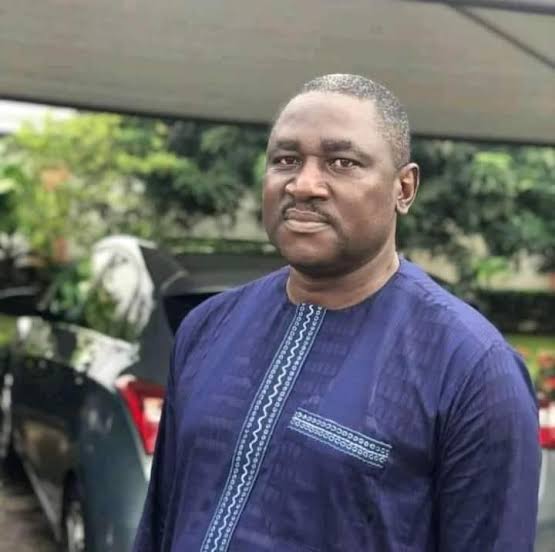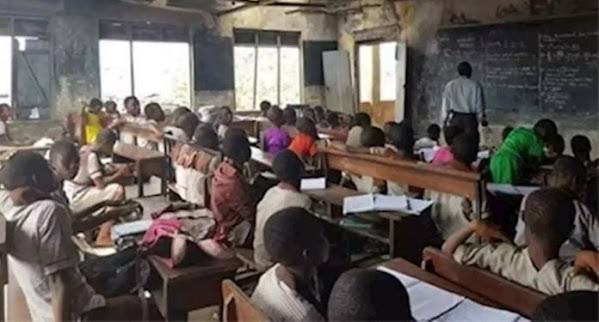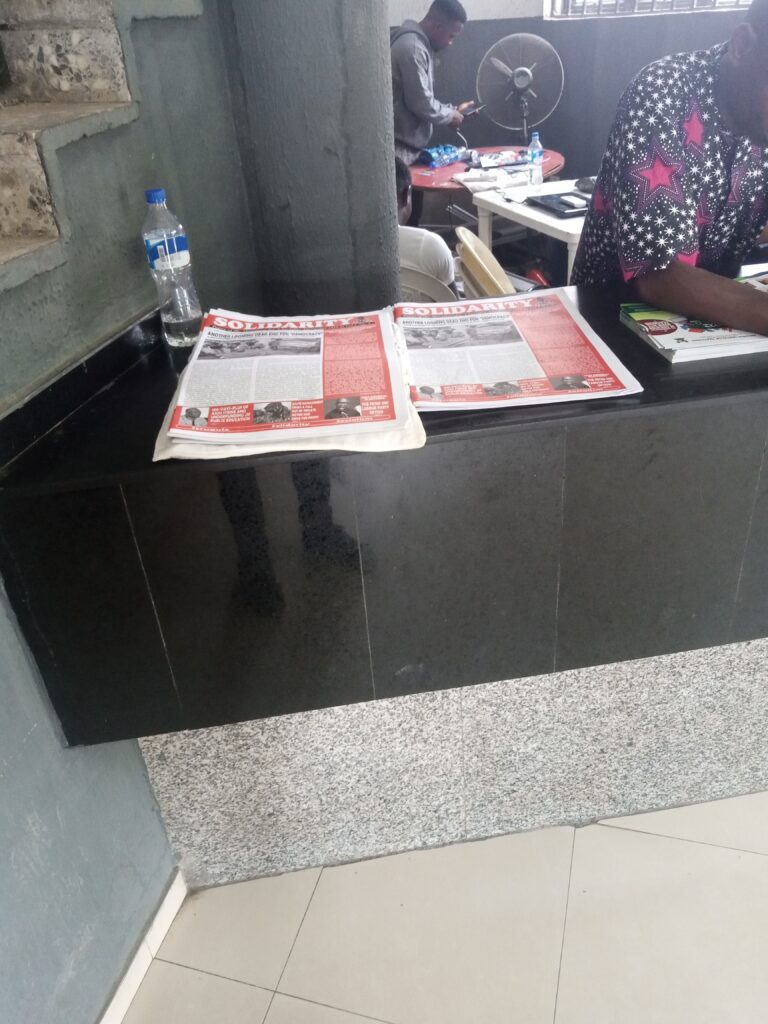2023 TEACHERS’ DAY CELEBRATIONS.

Teachers must place Demands on the Government’s Policy for Welfare and Quality Education. Rather than Jamboree.
Davy Fidel
The World Bank report has it that out of the eight billion people in the world. There are close to 85 million teachers worldwide. In this reported figure: 9.4 million in pre-primary; 30.3 million in the primary; 18.1 million in lower secondary; 14.0 million in upper secondary; and 12.5 million in tertiary education. Added to these statistics, it was mentioned that by 2030, 68.8 million teachers will be needed for both primary and secondary education.
While these are alarming statistics the World Bank has revealed. The poor underfunding of public education is another challenge in many neo-colonial and underdeveloped countries. Many government and capitalist politicians don’t see the importance of adequately increasing the budgetary allocation to 26% as the United Nations Educational, Scientific, and Cultural Organization has recommended. Rather, it has been a policy attack on the sector.
Nigeria, Punch has it that Nigeria has two million qualified and registered teachers. And the industry will need 250,000 teachers annually to cater to the growing population of pupils. In 2018, when this report was published, a lot of things has gone worsen to today. In many public schools, there are few teaching staff in many schools. This is despite the government claiming to have to employed new teachers as in Lagos and a few other states.
In Lagos, not less than 1000 teachers have been inducted as the Lagos State government has claimed. Yet, many of the public primary and secondary schools are still lacking the required qualified teachers to teach. Averagely, teachers in some of these schools are not enough to impart knowledge in the overpopulated classrooms. The poor teaching facilities, lack of good laboratory equipment, and library without books, which must be regularly updated; are lacking.
Many subjects are lacking teachers required to adequately deliver lectures to students. For other subjects that have teachers rendering it, they are overburdened with plenty of workloads that is meant to ensure they teach the overpopulated classes. The worse reality in public and secondary education is the growing illiteracy that requires attention.
Sadly, Nigeria is not among the ten most literate countries in the world. It is not among the 50 listed countries as Literacy Rate, 2022 reveals it. The new data from UNESCO on out-of-school children in Nigeria is put at 20 million and with the lack of teachers and infrastructure in our schools the crisis in the sector is endemic.

In many secondary schools, especially in science classes. Students interested in embarking on science projects in schools are frustrated because there are no modern laboratory equipment to aid their vision and knowledge. The same predicament implies to students offering Art and Commercial subjects, because of the inadequate funding of public education. Students in primary and secondary schools are not performing excellently as expected.
The government propaganda is that teachers must be blamed for students’ low academic performance. Whereas, it is the poor facilities and outdated means of teaching, which is linked to the budgetary allocation that is affecting teachers delivery and students low academic performance in school. This is what is responsible to the educational crises confronting the sector. Teachers must not be blamed but government’s policies truncating public education.
However, this is beyond the payment of teachers’ salaries as claimed by Governor Sanwo Olu at the teachers day event. It is for the government to use the state resources to improve the teaching skills of teachers by training and retraining them. However, the training must not be at the teacher’s cost but at the government’s budgetary allocation to public education. Besides, such an initiative can only be possible when there is a socialist government of workers’ management and control.
The underfunding of public education is also reflecting on the underdeveloped nature of Nigeria’s economy and industrialization. The policies of the Federal and State government are not different in undermining the funding of education: the budgetary allocation speaks the fact clouding us. The educational sector is seen as less concerned with the government. Teachers in public schools are meant to teach in harsh conditions and overpopulated classrooms with poor facilities.
The Teachers’ Day
Celebrations
As part of the World Teacher’s Day event held in Lagos. The Movement for A Socialist Alternative intervened at two centres. The intervention was in Ikeja and Ajeromi Ifelodun respectively. Seven papers were sold and contact was made. The occasion registered the appearance of bourgeois politicians attending to present their ambition of contesting in the 2023 general election.

Thus: it was strategic on the part of the capitalist politicians. And they used the October 5 teacher’s day to assure teachers present at the event that they will improve their welfare. The speeches of the state union leadership attest to this fact. The statement is to assure the teachers that the government of Sanwo Olu, if re-elected in February 2023 general election will “perform, that the administration shall continue to pay teachers their salaries as often as at when due”.
However, nothing was said about improving the quality of primary and secondary education. And, solving the low teaching staff in many schools lacking teachers. This also includes harsh teaching conditions. The teachers’ day event in Lagos as in other States, perhaps. Politicians used it to seek teachers’ support in the upcoming general election.
As earlier mentioned, it was strategic on the part of the politicians to capitalize on this day. This is possible because the trade union leaders don’t see the political implication of giving credence to workers’ programmes for capitalist politicians to use in declaring their ambition. If the workers are in the affairs of the trade union democratically, where democratic decisions are taken in the interest of workers.
It will be intricate for politicians representing capitalist ambition to use the union to seek workers’ support. This is especially when their policies are colliding with workers’ interests and welfare. Teachers and union officials in the trade unions must understand the importance of October 5 and why it must be used to discuss their affairs as workers who are seeking to improve working and living conditions. October 5 is like May Day and workers must begin to utilise such events to be placing objective demands on government policies.
We in the MSA stand in solidarity with the National Union of Teachers on the occasion of the World Teachers Day celebrated on October 5 internationally. It is also imperative that MSA and its members in all our branches will continue to be active in the October 5 teachers’-day event as it has been. Our solidarity is to identify with workers in this sector and stand with them in each of their demand. Workers’ democracy in the trade union is more fundamental to achieving workers’ interest than the bureaucracy smacking it.
We urged teachers to engage in its union and ensure participation in it. It is to use it for the best of their interest against the government policies. Through this means, it will adequately pressure the government to elevate the allocation to public education that will help increase the workforce in public schools, and teachers’ welfare, and adequately fund public education as expected. In achieving this unconditional attempt. Teachers in primary and secondary schools must unite its strength, be active in their union democratically, and ultimately use it to demand and organise an initiative that are workers oriented.
